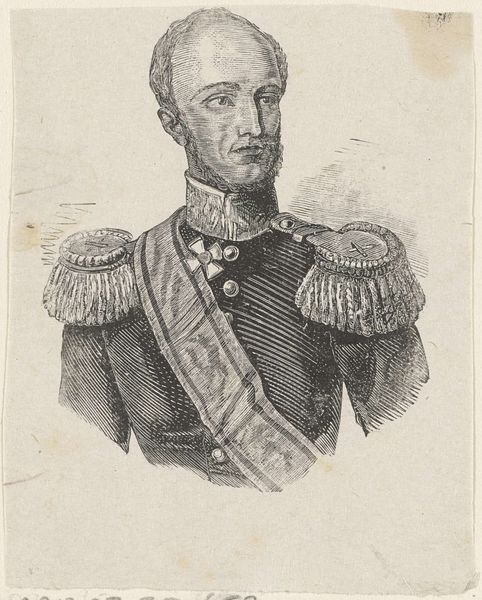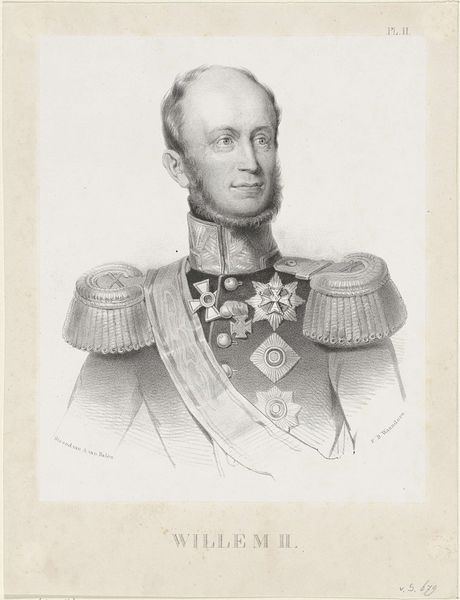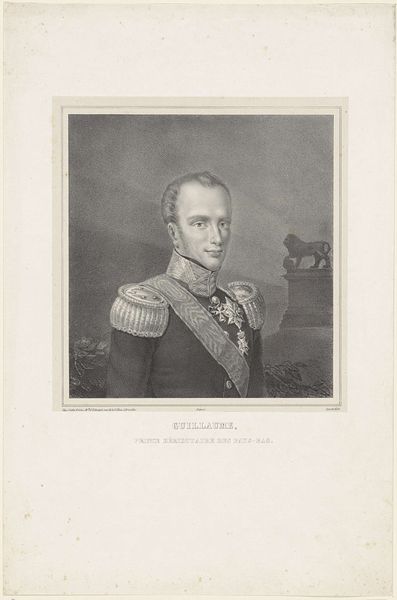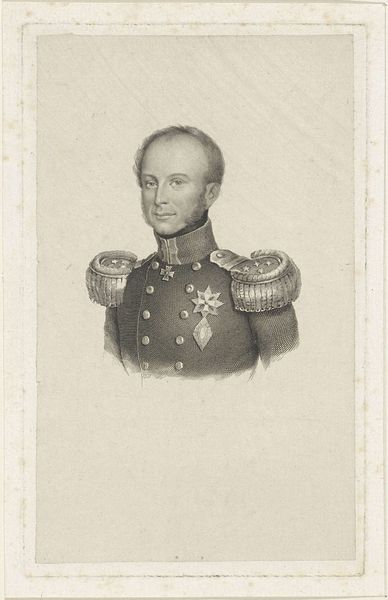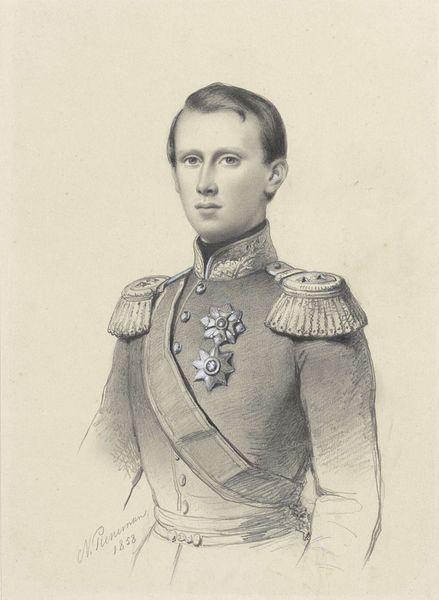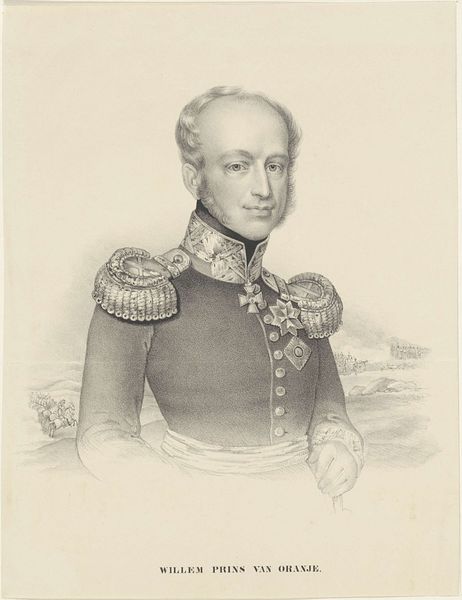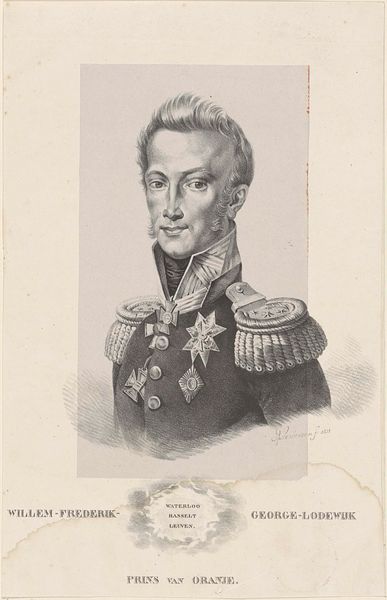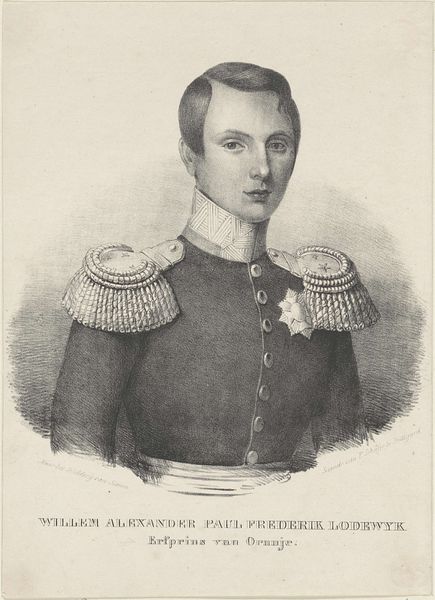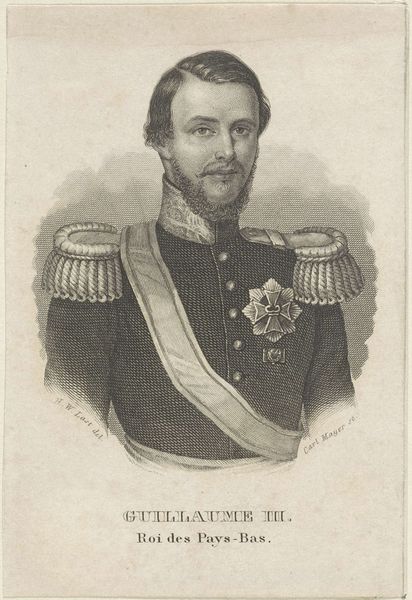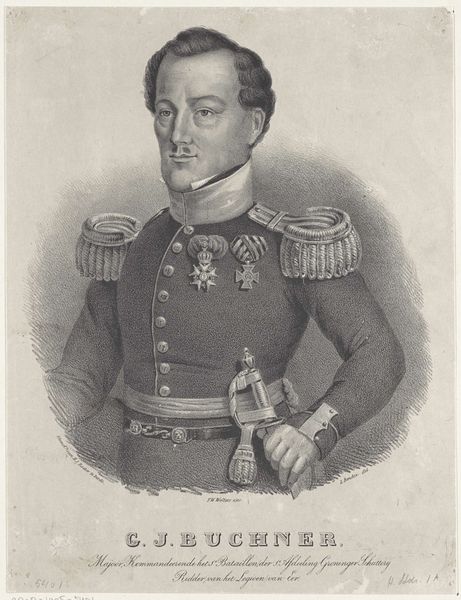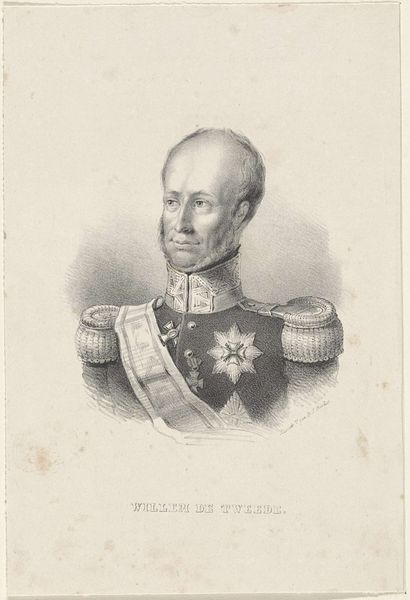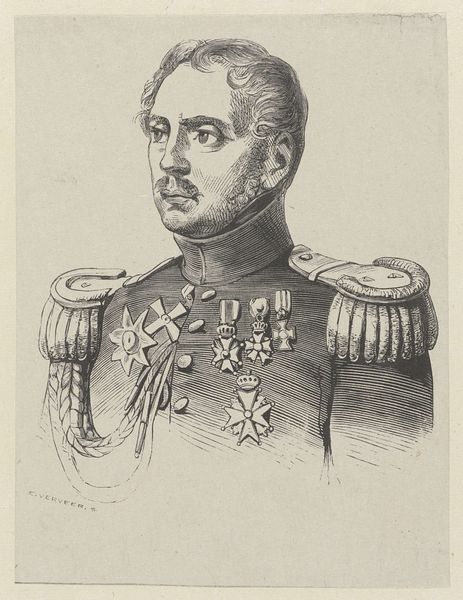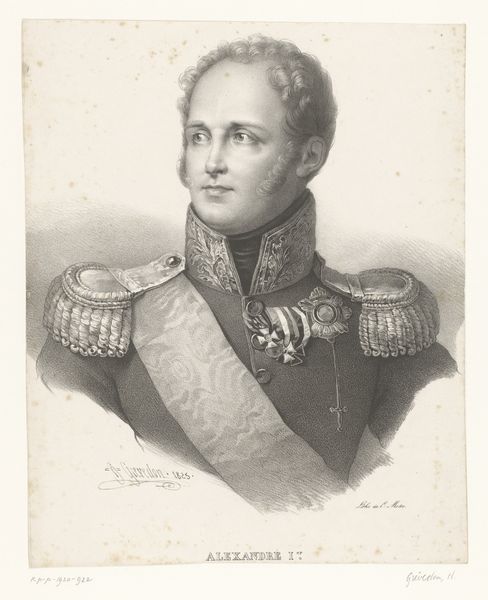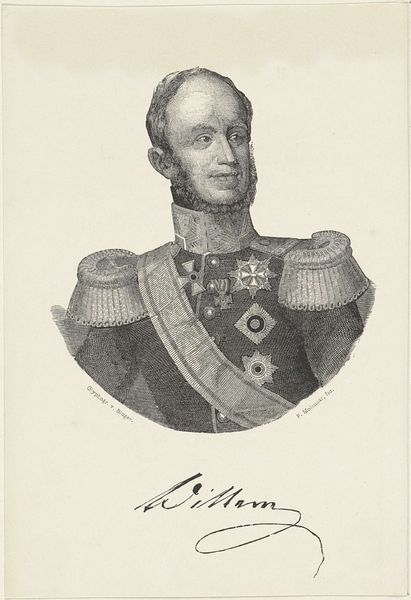
drawing, pencil, engraving
#
portrait
#
pencil drawn
#
drawing
#
caricature
#
pencil drawing
#
pencil
#
portrait drawing
#
academic-art
#
engraving
#
realism
Dimensions: height 186 mm, width 134 mm
Copyright: Rijks Museum: Open Domain
Curator: This is an anonymous drawing, “Portret van Willem II, koning der Nederlanden,” placing it sometime in the mid-19th century. Executed in pencil and engraving, it resides here at the Rijksmuseum. Editor: The detail is really impressive. I'm immediately drawn to the contrasting textures, from the smoothness of his face to the almost aggressive hatching defining the shadows in his clothing and those elaborate epaulettes. Curator: The very image of authority is precisely what they wished to project; considering this drawing's creation coincided with evolving political ideologies, how does the representation of Willem II, especially anonymously, speak to power structures and emerging nationalist sentiments of the period? Editor: Looking closely, one notices how the lines forming his features are not exactly flattering. While accurately depicting his features, there’s something almost subtly mocking in the slightly receding hairline and somewhat pinched expression, undercutting the imposing military attire. Curator: It’s a depiction made during the transition toward a more liberal constitution. How might this anonymous portrait reflect or subtly challenge his perceived authority, considering social shifts and calls for more democratic representation? The gaze almost avoids meeting yours. Editor: Indeed, it feels as if the artist, while bound by the conventions of formal portraiture, allows elements of realism – maybe even some caricatural exaggeration - to surface, giving it an ambivalence I find so engaging. I suppose the artist wasn’t looking to challenge anything overtly, yet we may find their statement of dissent in between these dense strokes. Curator: Such attention to realistic imperfections humanizes Willem, perhaps unintentionally highlighting the limitations of monarchical authority at a moment when the public began clamoring for accountability. It shows his vulnerable figure. Editor: Yes, considering the composition, texture, and that underlying subtle satire. A deep look, really. Curator: It reveals just how closely visual artistry and political currents were entwined, providing us insight into shifting social and political dynamics through portraiture. Editor: Right. The nuances, though understated, are what resonate with modern sensibilities, echoing our ongoing reassessment of power and representation.
Comments
No comments
Be the first to comment and join the conversation on the ultimate creative platform.
